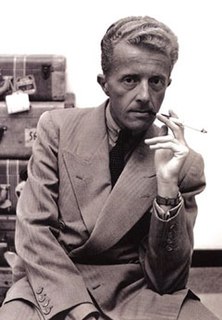A Quote by Prince Philip
I suppose I'd get in trouble if I were to melt them down.
Related Quotes
I was writing a story, 'The Artistic Career of Corky,' about two young men, Bertie Wooster and his friend Corky, getting into a lot of trouble, and neither of them had brains enough to get out of the trouble. I thought: Well, how can I get them out? And I thought: Suppose one of them had an omniscient valet?
You can say anything you want, yessir, but it's the words that sing, they soar and descend...I bow to them...I love them, I cling to them, I run them down, I bite into them, I melt them down...I love words so much...The unexpected ones...The ones I wait for greedily or stalk until, suddenly, they drop.
I couldn't get a job acting all the time and there were down periods where I could take photographs or paint. I got into a lot of trouble when I was young, from making two films with James Dean, watching him work and then him dying and thinking I could turn down work. There was a big difference, he was a star and I wasn't. So I got in a lot of trouble and was essentially banned from Hollywood.
I loved them all the way one loves at any age -- if it's real at all -- obsessively, painfully, with wild exultation, with guilt, with conflict; I wrote poems to and about them, I put them into novels (disguised of course); I brooded upon why they were as they were, so often maddening don't you know? I wrote them ridiculous letters. I lived with their faces. I knew their every gesture by heart. I stalked them like wild animals. I studied them as if they were maps of the world -- and in a way I suppose they were.
Imagine if somebody were to really sit down with Osama bin Ladin and say, 'Listen man, what is it that you're so angry at me about that you're willing to have people strap bombs to themselves, or get inside of airplanes and fly them into buildings?' That would be the miracle if we can get, sit down and talk to our enemies and find a way for them to hear us.






































